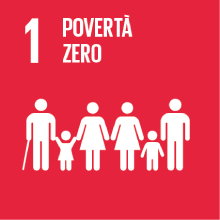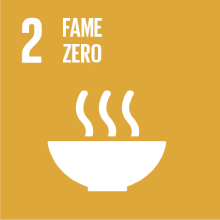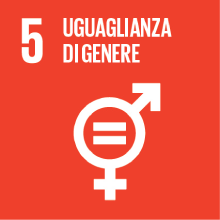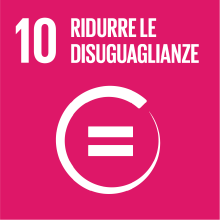TEORIE SOCIALI E GLOBALIZZAZIONE
- Anno accademico
- 2024/2025 Programmi anni precedenti
- Titolo corso in inglese
- SOCIAL THEORIES AND GLOBALIZATION
- Codice insegnamento
- LM6215 (AF:519640 AR:256808)
- Lingua di insegnamento
- Giapponese
- Modalità
- In presenza
- Crediti formativi universitari
- 6
- Livello laurea
- Laurea magistrale (DM270)
- Settore scientifico disciplinare
- SPS/14
- Periodo
- II Semestre
- Anno corso
- 2
- Sede
- VENEZIA
- Spazio Moodle
- Link allo spazio del corso
Inquadramento dell'insegnamento nel percorso del corso di studio
Risultati di apprendimento attesi
- Conoscere e comprendere gli elementi essenziali delle teorie sociali.
Applicare conoscenza e comprensione:
- Utilizzare le teorie sociali per globalizzare l'immaginazione della ricerca.
Giudizio:
- Esercitare il giudizio in modo completo e multidimensionale.
Comunicazione:
- Scrivere una proposta di ricerca utilizzando la conoscenza degli studi di area e del disegno di ricerca.
Prerequisiti
Contenuti
① Teoria sociale e progettazione della ricerca
② Studi di area e discipline
③ L'ascesa della globalizzazione
④ Gli studi di area nell'era globale
⑤ Topic, Tema e Domanda/e di Ricerca
⑥ Precedenti studi e dati
⑦ Ipotesi e valori
⑧ Sampling
⑨: Metodi di ricerca (1)
⑩: Metodi di ricerca (2)
⑪: Metodi di ricerca (3)
⑫: Concetti (1)
⑬: Concetti (2)
⑭: Scrittura e ricerca (1)
⑮: Scrittura e ricerca (2)
Testi di riferimento
Conrad, Sebastian, 2016, What is Global History?, Princeton University Press.
Kiechel, Walter, 2010, The Lords of Strategy: The Secret Intellectual History of the New Corporate World, Harvard Business Review Press.
Ryan, Alan, 2013, On Politics: A History of Political Thought from Herodotus to the Present, Penguin Books.
Massey, Doreen, 2005, For Space, SAGE Publications.
Marcus, George E. E. and Michael M. J. Fischer, 1999, Anthropology as Cultural Critique: An Experimental Moment in the Human Sciences, University of Chicago Press.
Hunt, Lynn, 2014, Writing History in the Global Era, W. W. Norton & Company.
Peter Burke, 2019, What is Cultural History?, Polity.
Plummer, Ken, 2021, Sociology: The Basics, Routledge.
Graeber, David and David Wengrow, 2021, The Dawn of Everything: A New History of Humanity, Farrar, Straus and Giroux.
Appadurai, Arjun, 1996, Modernity at Large: Cultural Dimensions of Globalization, University of Minnesota Press.
Graeber, David, 2007, There Never Was a West: Or, Democracy Emerges From the Spaces In Between, From the collection "Possibilities: Essays on Hierarchy, Rebellion, and Desire" by AK Press.
Latour, Bruno, 2007, Reassembling the Social: An Introduction to Actor-Network-Theory, OUP Oxford.
Ong, Aihwa, 2006, Neoliberalism as Exception: Mutations in Citizenship and Sovereignty, Duke University Press.
Sassen, Saskia, 2014, Expulsions: Brutality and Complexity in the Global Economy, The Belknap Press of Harvard Unversity Press.
Tsing, Anna Lowenhaupt, 2015, The mushroom at the end of the world: on the possibility of life in capitalist ruins, Princeton University Press.
Hammond, Michael and Jerry Wellington, 2020, Research Methods: The Key Concepts (Routledge Key Guides), Routledge.
Morin, Jean-Frederic, Christian Olsson, and Ece Ozlem Atikcan ed., 2021, Research Methods in the Social Sciences: An A-z of Key Concepts, Oxford University Press.
Alvesson, M., & Sandberg, J., 2013, Constructing Research Questions: Doing Interesting Research, SAGE Publications.
Booth, Wayne C. , Gregory G. Colomb, Joseph M. Williams, Joseph Bizup and William T. FitzGerald, 2016, The Craft of Research, Fourth Edition, Fourth Edition, the University of Chicago Press.
Chaubey, Varanya, 2018, The little book of research writing : the structural challenge of communicating knowledge + a method to meet it, CreateSpace Independent Publishing Platform.
Creswell, John W., 2021, A Concise Introduction to Mixed Methods Research, SAGE Publications.
Creswell, John W., and Vicki L. Plano Clark, 2017, Designing and Conducting Mixed Methods Research, SAGE Publications.
Kottmann, Nora and Cornelia Reiher (eds.), 2020, Studying Japan: Handbook of Research Designs, Fieldwork and Methods, Nomos.
Mullaney, Thomas S., and Christopher Rea, 2022,, Where Research Begins Choosing a Research Project That Matters to You and the,World, Univ of Chicago Press.
Punch, Keith F, 2013, Introduction to Social Research: Quantitative and Qualitative Approaches, SAGE Publications Ltd.
Silvia, Paul J., 2019, How to Write a Lot: A Practical Guide to Productive Academic Writing, 2nd ed, American Psychological Association.
Wadsworth, Yoland, 2020, Do It Yourself Social Research: The bestselling practical guide to doing social research projects, Routledge.
Modalità di verifica dell'apprendimento
1) Superare l'esame al computer su “Teoria sociale” (superamento con 18/30, 50%).
2) Presentare un piano di ricerca per la Tesi magistrale (50%). Il piano di ricerca deve includere i seguenti punti: 1) quali sono gli oggetti e i temi che vi interessano in Giappone, 2) le ricerche precedenti, 3) a quale domanda volete rispondere (domanda di ricerca) e 4) quali metodi userete per raccogliere i dati (metodi di ricerca). La relazione deve essere scritta in inglese o in giapponese. Se è in inglese, deve essere di circa 1500 parole; se è in giapponese, deve essere di circa 3000 caratteri.
Modalità di esame
Metodi didattici
Tutti i materiali delle lezioni e le letture di approfondimento saranno disponibili sulla piattaforma moodle dedicata al corso.
Altre informazioni
Gli studenti che hanno ottenuto crediti in Storia dell'Asia orientale possono seguire anche questo corso.
Obiettivi Agenda 2030 per lo sviluppo sostenibile
Questo insegnamento tratta argomenti connessi alla macroarea "Povertà e disuguaglianze" e concorre alla realizzazione dei relativi obiettivi ONU dell'Agenda 2030 per lo Sviluppo Sostenibile




